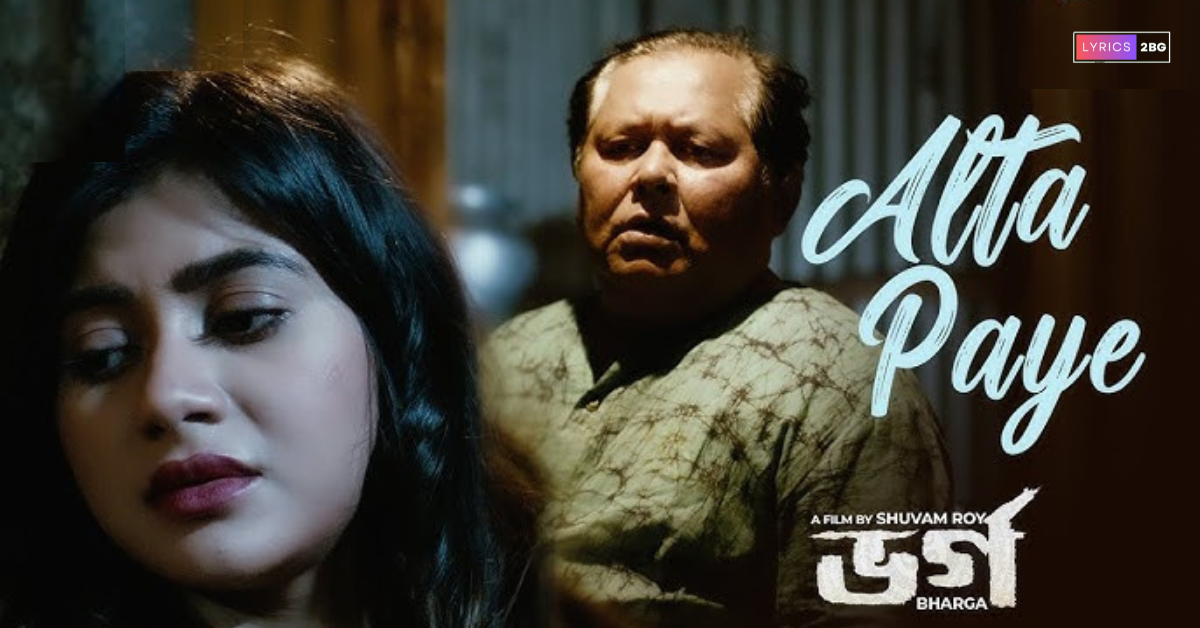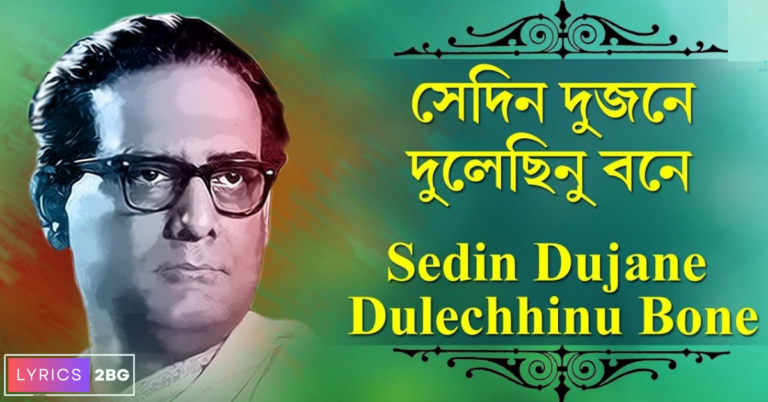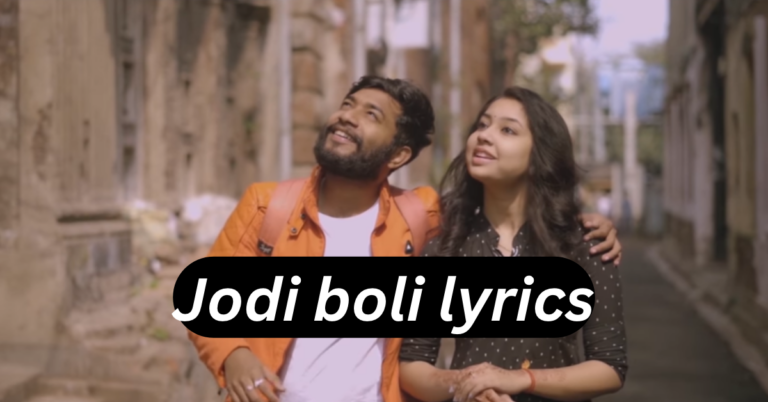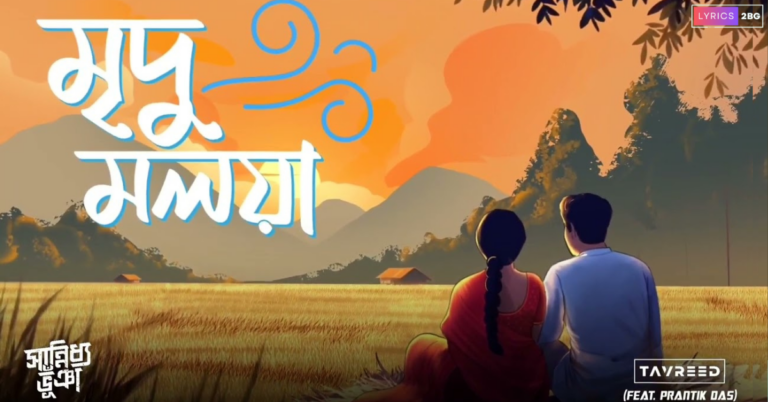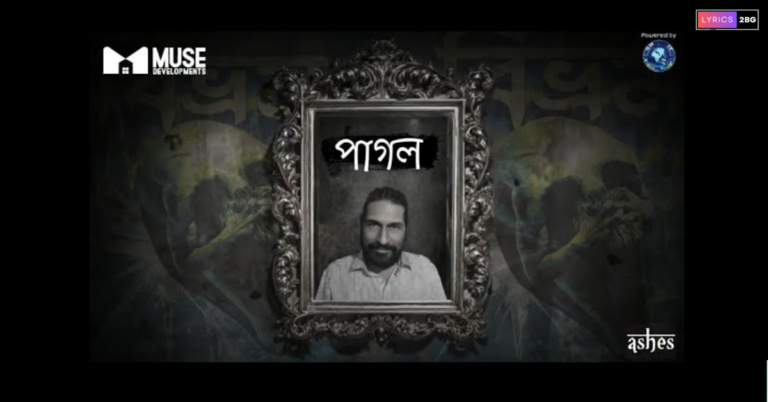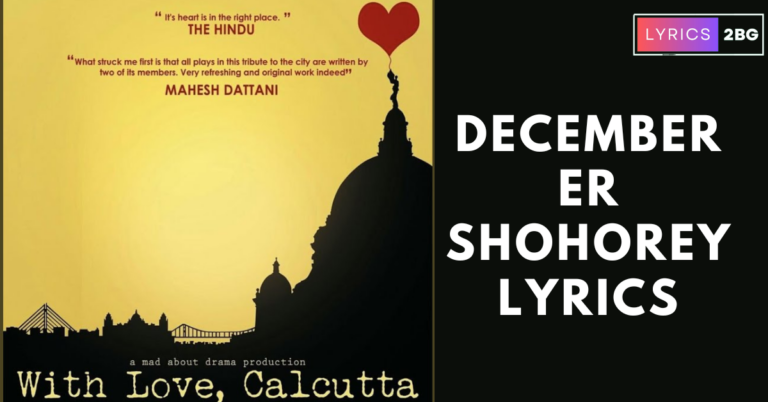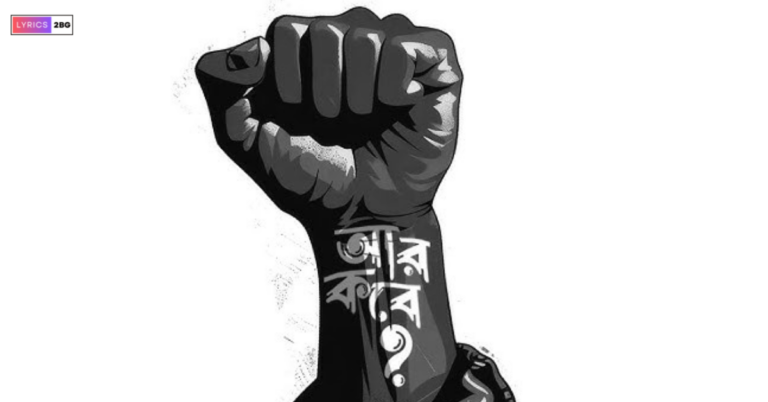Alta Paye Lyrics | আলতা পায়ে | Bharga
Alta Paye Lyrics
ছোট্টো ছোট্টো আলতা পায়ে আয় না রে মা আমার কাছে
ঘুমপরানি গল্পগুলো একলা পড়ে খাতের পাশে
দীর্ঘ দিনের জেগে থাকা এই চোখ দুটি আজ ক্লান্ত ভীষণ
কলটা পেতে দে না রে মা ঘুমই আমি আগের মতো
রাখবো বুকে আঁকড়ে তোকে
পলাবি ছেড়ে কোথায় তখন
রাখবো বুকে আঁকড়ে তোকে
পলাবি ছেড়ে কোথায় তখন
বাবা বলে ডাকবি আমাকে, আজও সেই অপেক্ষায় বসে থাকি
বাবা বলে ডাকবি আমাকে, আজও সেই অপেক্ষায় বসে থাকি
যদি কখনও আসিস ফিরে
এখনো আশা কিছু আছে বাকি
ফাঁকি দিয়ে গেলি চলে সব কিছু পিছনে ফেলে
আকা আকা পড়ে আছি এত স্মৃতির ভিড় আগলে
দিন গুণছি সেই দিনের আশায়
আবার তোকে দেখবো যেদিন
রাখবো বুকে আঁকড়ে তোকে
পলাবি ছেড়ে কোথায় তখন
Meaning of Alta Paye Lyrics
Alta paye lyrics beautifully captures the themes of nostalgia, longing, and the deep emotional ties that bind us to our loved ones. It opens with an endearing image of a child calling out to their mother, evoking innocence and a yearning for comfort. The reference to “small red feet” hints at childhood playfulness and the warmth associated with parental figures. The speaker’s loneliness is palpable as they sit beside their notebook, reading stories alone—highlighting a stark contrast between the carefree days of youth and the solitude of adulthood. The lyrics loneliness is compounded by the speaker’s weary eyes, suggesting a long period of waiting and a fatigue from the emotional toll of separation.
As the lyrics unfold, the speaker expresses a deep desire for connection and the hope of reunion. The refrain about holding their loved one close underscores an intense yearning to reclaim lost intimacy, posing a rhetorical question about where the loved one would escape to if they were embraced again. This suggests that the bond is so profound that leaving would feel impossible in that moment of reconnection. The longing is further illustrated through the reflections on a father figure, who is awaited with hope.
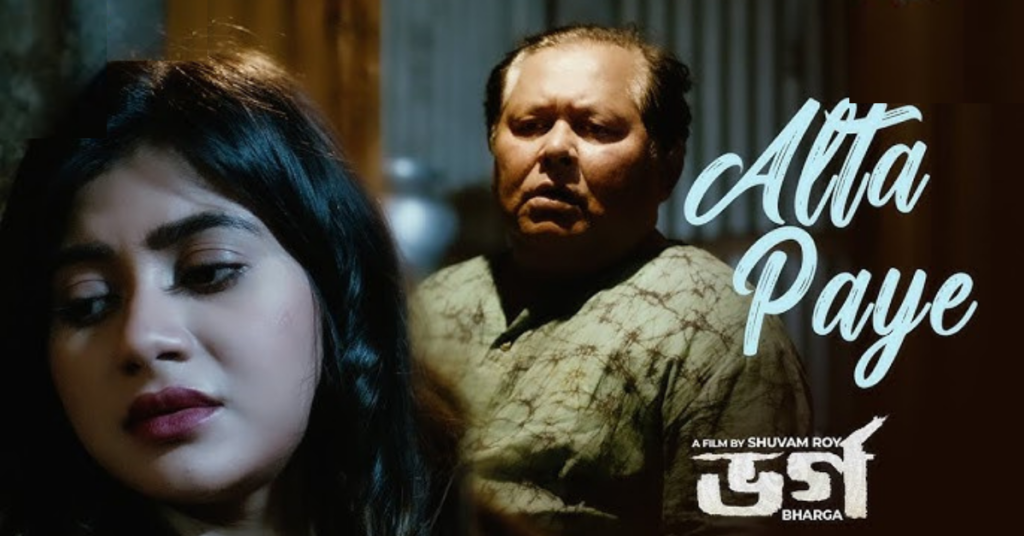
Alta paye lyrics repeated lines about waiting signify not just physical absence but an emotional gap that remains unfilled. The speaker remains anchored in hope, waiting for the possibility of the father’s return and holding onto the memories that still offer comfort.
Memories play a significant role in the song, acting as both a solace and a source of pain. The imagery of counting days while yearning for the past suggests a life suspended in anticipation, where each day feels like a step closer to a hopeful reunion. This longing for the past is expressed through the bittersweet acknowledgment of memories that linger, creating a space filled with both joy and sorrow. The metaphor of being surrounded by memories evokes a sense of being trapped in a time loop, where the past continually influences the present.
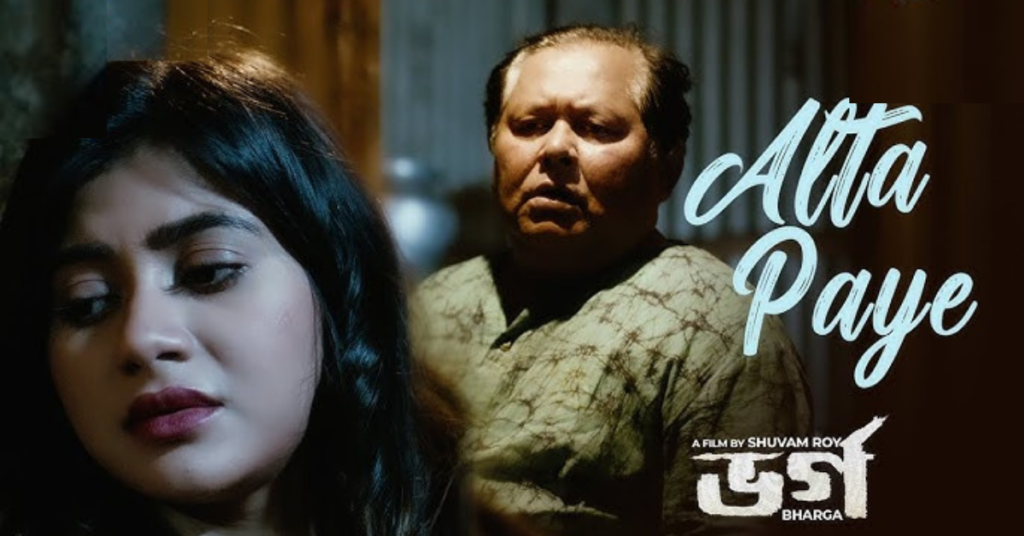
Alta paye lyrics culminates in a profound emotional plea, capturing the essence of human relationships. It communicates a universal sentiment of waiting for loved ones—whether they are physically absent or emotionally distant. The repeated insistence on the hope of seeing the loved one again conveys resilience in the face of longing. It suggests that despite the passage of time and the pain of separation, love remains a powerful force, capable of transcending distance and time.
Alta paye lyrics exploration of love’s enduring nature, reflecting the complexities of human emotions. The lyrical journey from innocence to longing to hopeful anticipation resonates deeply with listeners, inviting them to reflect on their own experiences of love and loss. It is a reminder that while separation can bring about feelings of despair, the bonds of love and hope have the strength to endure, illuminating the path toward healing and reunion. The combination of rich imagery and emotional depth creates a touching narrative that speaks to the heart, reminding us of the vital connections that define our lives.
Song : Alta Paye Lyrics
Singer : Nachiketa Chakraborty
Lyrics & Composition : Adrita Jhinuk
Programming and Mix Master : Dhrubo Bhattacharya
Guitar : Sunny
Recordist : Dev Prasad
Recording Studio : Fusion Pro
Film : Bharga ভর্গ
Production : Akash Anjali
Production (AAP) Story : Bhakti Pada Das

